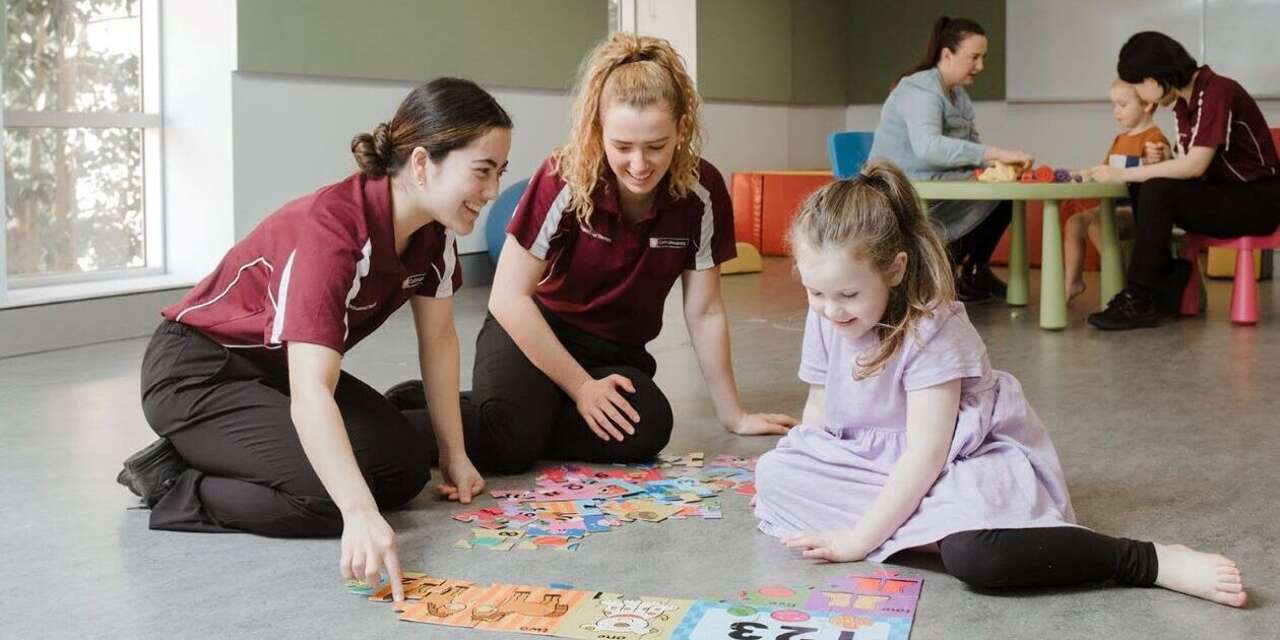Overview
Overview
Occupational therapists work with people of all ages of all ages who may have experienced injury, illness or disability. They help people to engage in occupations or activities that are meaningful to them and to achieve independence, better health, wellbeing and satisfaction in their lives.
In this course, you will learn to identify the physical, psychosocial, cognitive, behavioural and environmental factors that can help or hinder participation in everyday activities.
You’ll learn to collaborate with other health professionals to provide crossdisciplinary care focused around the client and their needs.
Throughout the course, you’ll learn in laboratories, learning spaces and resource rooms tailored for gaining occupational therapy skills. You’ll also complete approximately 1,000 hours of fieldwork practice in various clinical and industry settings.
How this course will make you industry ready
As an occupational therapist, you can work across a range of industries in different roles.
Working with children: Help children achieve their developmental milestones such as fine motor skills and hand-eye coordination. Educate and involve parents, carers and others to facilitate the normal development and learning of children.
Rehabilitation and aged care: Help clients regain or enhance their daily lives after an event such as hip replacement or stroke. Assess and modify clients’ home and community environments to improve their safety and independence.
Acute care: Assess clients’ cognition, function and psychosocial needs. Monitor clients’ function and progress, prescribing adaptive equipment to ensure safety upon discharge from hospitals.
Injury management: Use specialised assessments to determine the functional requirements of various jobs, and clients’ capacity to return to work. Design and coordinate graded return to work programs. Educate clients in safe work practices. Modify the work environment to suit the needs of individuals to prevent or minimise injuries.
Mental health: Design individual and group programs and activities to enhance clients’ independence in everyday activities. Develop coping strategies for clients in overcoming their mental health issues.
What jobs can the Occupational Therapy course lead to?
Careers
- Occupational therapist
Industries
- Acute care
- Disability services
- Injury management
- Mental health and wellbeing
- Rehabilitation
- Aged care
- Child health
What you'll learn
- apply occupational therapy knowledge, principles and practice to achieve client-centred and evidence-based outcomes
- demonstrate critical and professional reasoning to create innovative and effective solutions for occupational therapy practice
- use credible sources to locate, evaluate and synthesise information, including theoretical concepts and technical knowledge to support clinical decision-making in contemporary occupational therapy and research
- communicate effectively and appropriately to ensure active client participation; accurate documentation and reporting; and the sharing of professional and research outcomes to academic, industry and community stakeholders
- evaluate contemporary occupational therapy practice and research and incorporate appropriate technologies to enable participation in meaningful occupations
- actively seek and engage in opportunities for ongoing learning that builds the body of occupational therapy knowledge and research, and facilitates personal and professional aspirations
- demonstrate practice that reflects an understanding and appreciation of the influences and relationships between local and global occupational therapy professional standards and interprofesional practice
- undertake occupational therapy practice and research in a culturally safe and respectful manner incorporating perspectives of multiple stake-holders
- work in a professional and collaborative manner to meet ethical and legal responsibilities

